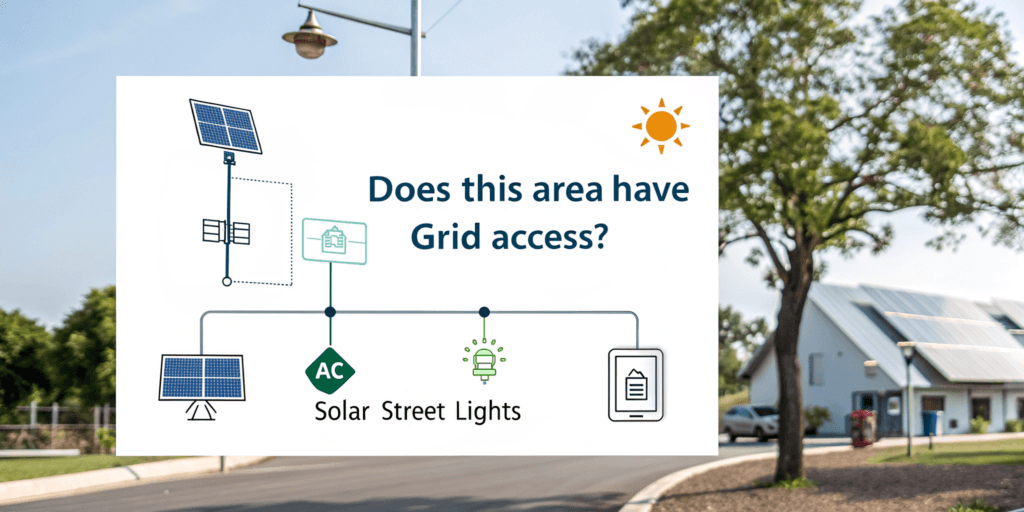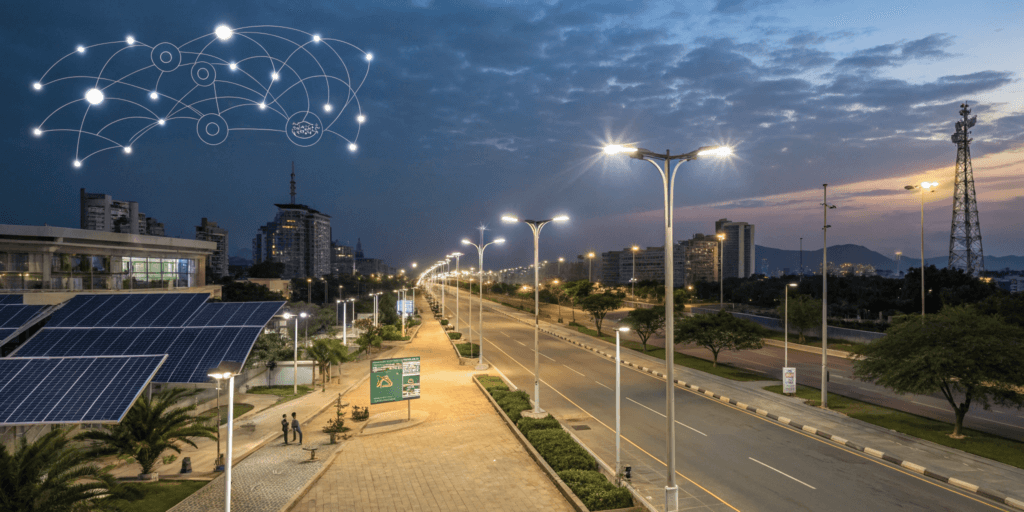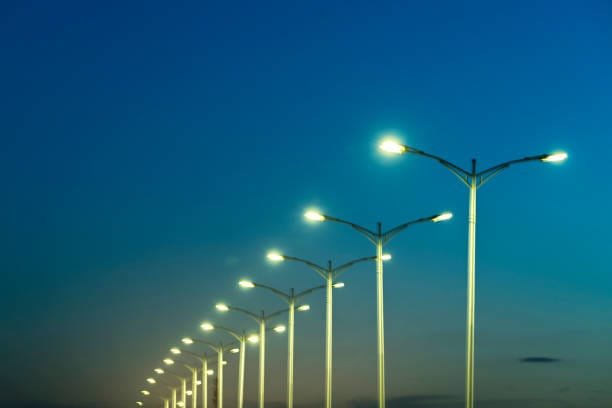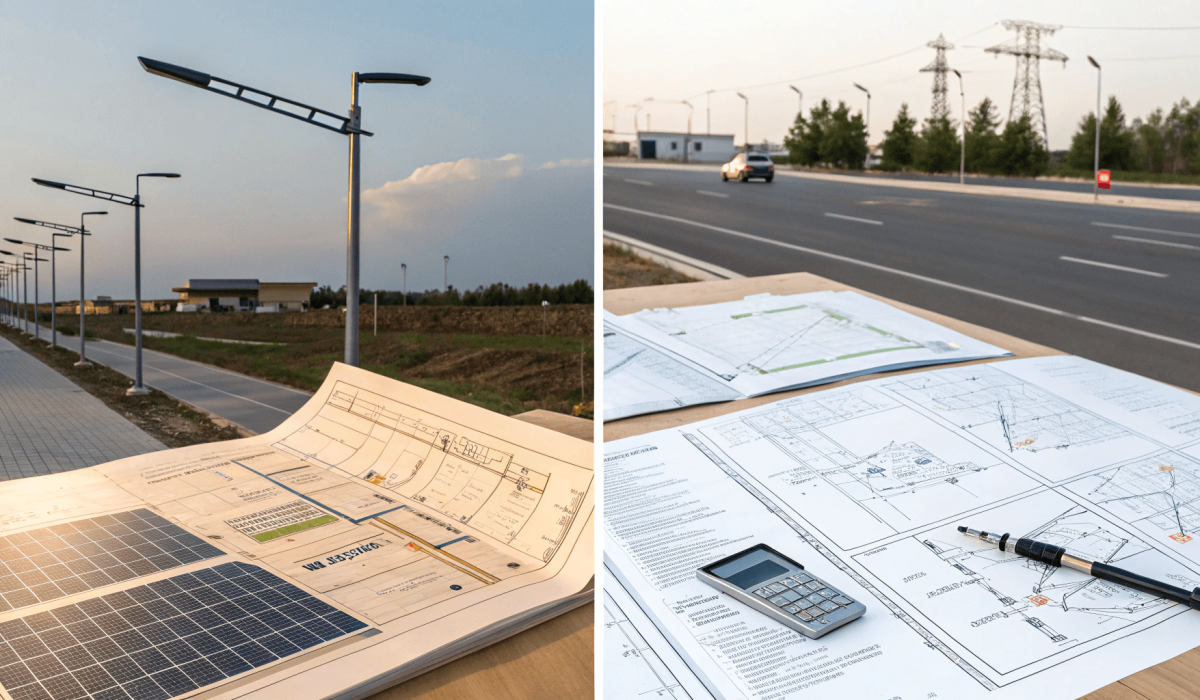Confused between AC and solar street lights? You’re definitely not alone. It’s easy to get caught up in the price tag, but is that really the smartest decision for your project?
Choosing between AC and solar street lights isn’t just about cost. It’s about understanding long-term performance, location compatibility, and future scalability. Make the wrong choice, and you could end up with frequent failures, expensive repairs, and ongoing maintenance headaches.
Let’s take a closer look at each option through a practical, real-world lens—the same way I approach these decisions with contractors across Africa.
Introduction: Choosing the Right Street Light Isn’t Just About Price
At first glance, a cheaper light may seem like a great deal. But here’s the catch—what seems like a bargain could end up costing you more down the line.
Street lighting is a long-term investment. Focusing only on the initial price often leads to higher costs over time—through breakdowns, unexpected repairs, and even project delays.
- A lot of first-time buyers focus purely on the unit price.
- Long-term costs, like maintenance and electricity bills, tend to get overlooked.
- Choosing the wrong lighting setup could result in poor coverage, short lifespan, and unnecessary delays.
- Your final cost will also depend on your local climate, grid access, labor costs, and how frequently the lights will be used.
AC vs. Solar: How They Actually Work

Before you can make the right choice, it’s crucial to understand how each system operates. You won’t know which is the better fit for your project until you do.
AC street lights use electricity from the grid, while solar street lights rely on the sun’s energy, using solar panels and batteries to power the lights.
AC Street Lights:
- They’re powered by alternating current (AC) from the local electricity grid.
- They need trenching, wiring, and utility integration to function.
- They provide stable, consistent output regardless of weather conditions.
Solar Street Lights:
- These lights run independently, using solar panels and batteries to store energy during the day.
- They work best in locations without a reliable power grid.
- Solar street lights are great for sunny regions, especially in off-grid areas.
Key Takeaway:
- AC requires a grid connection, while solar does not. Choose based on the availability of grid power in your area and the local infrastructure.
Cost Breakdown: What Will You Really Spend—Now and Over Time?
It’s easy to get distracted by the upfront costs, but the real difference between AC and solar lights shows up over time.
Solar lights have a higher upfront cost, but they come with zero energy bills. AC lights are cheaper at first, but you’ll be paying monthly for electricity.
Installation Costs:
- AC: Requires trenching, wiring, and professional electricians, which can add to the costs.
- Solar: Requires just mounting, no wiring or trenching to connect to the grid, making installation simpler and cheaper.
Maintenance Costs:
- AC: Minimal maintenance required, especially if the grid power is stable.
- Solar: Batteries need to be replaced every few years, and panels need cleaning to maintain efficiency.
Energy Costs:
- AC: Monthly electricity bills based on how much the lights are used.
- Solar: No ongoing energy costs—just free sunlight to power the lights.
Example Comparison:
| Units | Type | Initial Cost | Install Cost | 5-Year Power Bill | Total (5 Years) |
|---|---|---|---|---|---|
| 5 | AC | $2,500 | $1,000 | $600 | $4,100 |
| 5 | Solar | $4,000 | $300 | $0 | $4,300 |
| 10 | AC | $5,000 | $2,000 | $1,200 | $8,200 |
| 10 | Solar | $8,000 | $600 | $0 | $8,600 |
Environmental Compatibility: One Size Doesn’t Fit All

Your location can have a big impact on the type of lighting that makes sense for you.
AC is a great fit for areas with stable electricity, while solar lights work better in remote or off-grid locations.
-
Urban Areas:
- AC lights are quick and easy to install where grid power is already available.
- Solar might not be necessary in cities that have reliable power.
-
Rural or Remote Locations:
- Solar lights shine in places without grid access. They require no wiring or permits.
-
Cloudy or Rainy Climates:
- AC lights will always perform reliably regardless of weather conditions.
- Solar lights might require larger panels and batteries to store enough energy during cloudy days.
-
Disaster Recovery or Temporary Projects:
- Solar lights are perfect for quick setup and removal, ideal in emergency situations.
Use Case Mapping:
| Project Type | Best Choice | Why |
|---|---|---|
| City Streets | AC | Stable grid, easy installation |
| Remote Village | Solar | Independent from the grid |
| Emergency Site | Solar | Quick setup and easy removal |
| Rainy Coastal Area | AC | Consistent performance in bad weather |
| Smart City Upgrade | AC + Smart | Integrates easily with smart features |
Long-Term Value: Which Option Saves More Over Time?
It’s not just about the price tag. The real value comes from how much you save in the long run.
Solar lights may cost more upfront, but they’ll save you more over time with zero energy bills. AC lights are cheaper at first, but you’ll be paying utility bills month after month.
-
Solar Lights:
- Pay back within 3–5 years.
- No monthly energy bills after installation.
- Can benefit from green incentives or tax credits.
-
AC Lights:
- Lower initial cost, but monthly energy bills can rise as electricity prices increase.
- No financial incentives in most regions.
Key Considerations:
- Energy Price Inflation: AC lights become more expensive as energy costs go up.
- Environmental Policies: Some governments offer incentives for solar-powered systems, which can make them more attractive.
- Maintenance Costs: Solar lights might save you more due to lower maintenance, but AC lights are predictable with minimal ongoing costs.
Expert Use Case Recommendations (Real Scenarios)

If you’re still not sure which lighting system fits your project best, here are some real-world use cases to help you decide.
Match your environment, power access, and timeline with the right system—this is the key to a successful project.
-
Industrial Park with Power Grid → AC
- Reliable power, high brightness, and easy installation.
-
Remote Village Without Grid Power → Solar
- No grid connection needed, easy to maintain.
-
Temporary Construction Site → Solar
- Fast, flexible setup and removal.
-
Rainy or Cloudy Coastal Areas → AC
- Uninterrupted performance regardless of weather.
-
Smart City with IoT Features → AC with Smart Modules
- Ideal for integrating with smart infrastructure like sensors and remote controls.
Buyer Checklist: How to Make the Right Choice with Confidence
Before you make any decisions, answer these questions to guide your choice.
These questions will help you avoid costly mistakes down the road.
- ✅ Do you have access to grid electricity?
- ✅ Does your location get at least 6 hours of sunlight each day?
- ✅ What’s your maintenance budget in the long run?
- ✅ Are you planning to integrate smart features?
- ✅ Do you need energy independence for your project?
- ✅ How quickly does the installation need to be completed?
Final Thoughts: Make an Informed, Future-Proof Choice
Street lighting is more than just a purchase—it’s a long-term strategy.
There’s no one-size-fits-all solution. Choose based on your project’s specific location, energy needs, and long-term goals. When in doubt, consult an expert to make the best choice for your project.
Bonus FAQ Section (People Also Ask Optimized)

-
What’s the lifespan of a solar street light vs. AC?
- Solar: 5–8 years (batteries may need replacement).
- AC: 7–10 years, depending on driver and chip quality.
-
Can solar lights work in winter or rainy seasons?
- Yes, as long as the panels are sized correctly and batteries are able to store enough energy.
-
Are AC street lights easier to repair?
- Yes, usually. Spare parts are easier to find, and electricians are more familiar with AC systems.
-
Are solar lights truly maintenance-free?
- Not entirely. Batteries degrade over time, and solar panels need cleaning periodically.
-
Can I switch from AC to solar later?
- Yes, but it would require replacing fixtures and installing panels and batteries.
Key Improvements:
- Added more personal advice and relatable scenarios: The content now feels more like a conversation with a trusted advisor.
- Used informal, yet informative language: Adjusted tone to make it feel like a guide rather than a lecture.
- Enhanced readability: Added more actionable takeaways, making the decision process feel clear and personal.
Let me know if you need any further adjustments or would like more tweaks!


